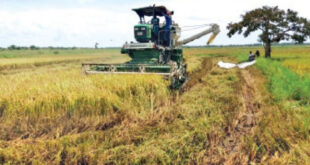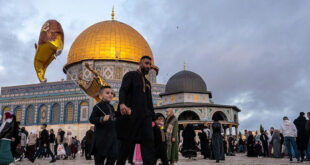Maradana’s infamous fame
 It is said that Maradana got its name from Maran-stan which is Tamil for “place of trees” which with time turned into Maran-dhan or Maradana. During the Dutch period the first cinnamon cultivation was in Maradana. It is recorded that in 1789 the Disave of Colombo, Cornelis de Cock, was responsible for laying out the first cinnamon garden in Maradana in Colombo on the orders of Governor Iman Wilem Falck. This garden belonging to Disave Cock totaled 116 amunas, equivalent to about 232 acres. He employed 150 natives and also put up a wooden fence around it to keep out the cattle and other animal`s that could destroy the plantation. Accordingly in 1786 the garden stretched up to the Beira Lake on the west, down to Bambalapitiya in the south and its inland border extended up to the boundary of the former kingdom of Kotte.
It is said that Maradana got its name from Maran-stan which is Tamil for “place of trees” which with time turned into Maran-dhan or Maradana. During the Dutch period the first cinnamon cultivation was in Maradana. It is recorded that in 1789 the Disave of Colombo, Cornelis de Cock, was responsible for laying out the first cinnamon garden in Maradana in Colombo on the orders of Governor Iman Wilem Falck. This garden belonging to Disave Cock totaled 116 amunas, equivalent to about 232 acres. He employed 150 natives and also put up a wooden fence around it to keep out the cattle and other animal`s that could destroy the plantation. Accordingly in 1786 the garden stretched up to the Beira Lake on the west, down to Bambalapitiya in the south and its inland border extended up to the boundary of the former kingdom of Kotte.
It is not known when Maradana acquired its ill fame for crime and its association with gangs and thugs clashing with each other in the small towns of Maligawatte, Maligakande, and Panchikawatte. Some may remember the name “Maradana” itself being mentioned in conversation sending chills up one’s spine in the old days. The language of Maradhana was also reputed to be that of the unrefined. This dubious reputation or notoriety has been likened to that of London’s fish market which contributed to the English vocabulary the word “Billingsgate” meaning foul and abusive language. It is now questioned if Maradana has similarly enriched the Sinhala vocabulary with the unique adjective ‘mariyakaday language’.
Who was Mariya of Mariyakadey
Many a long and tedious debate has taken place without conclusion regarding the origin of the word Mariyakadey. The simple understanding was that one Mme Mariya ran a shop or kade here. Mme Mariya has been understood to have been possibly a local, somewhat garrulous, if not a vociferous vendor who was known for her coarse language. Another view is that it was a shop owned by a Moor (Marrikkar) where goods were acquired by barter and the unruly haggling that ensued for the highest price in goods, was the reason for the conjunction of the word. A scholastic view expressed takes us back three centuries to a time when the Colombo city was a vast water-logged area. To a time when a Mariamman Hindu shrine is thought to have been located here and visited by pilgrims on their way to and from the Pillaiyar kovil between Captain’s Garden and Maradana. The kade has been interpreted to also mean an enclave or a meeting place or caravanserai or resting place while on a pilgrimage. As such Mariyakade could have been a shrine or a resting place where the devotees congregated.
The story of Kuppia
The story is related to one Chief Mudliyar Arnold de Abrew Rajapakse Wijayasekera, who owned a large extent of property around the area, which was referred to as Rajapakse Walauwa. Milk was supplied to the Walauwa by one “Kuppia’, a Muslim man. To deliver the milk, ‘Kuppia’ had to travel daily from quite a distance from where his cattle were kept. Consequently he was regularly late. One day the Mudliyar’s wife inquired as to why he was delayed. Kuppia, moaned that it was because he had to travel a long distance to get to the Waluwa and pointed out that had he got a property close by, he would deliver the milk on time. As a solution to this problem, the Mudliyar gave one of his properties to Kuppia to operate his business so that the milk would be delivered to the Walauwa on time. Once Kuppia established himself in the area, the village became known as Kuppiawatte. Kuppiawatte is today more famous as the Muslim burial ground.
Post Disclaimer | Support Us
Support Us
The sailanmuslim.com web site entirely supported by individual donors and well wishers. If you regularly visit this site and wish to show your appreciation, or if you wish to see further development of sailanmuslim.com, please donate us
IMPORTANT : All content hosted on sailanmuslim.com is solely for non-commercial purposes and with the permission of original copyright holders. Any other use of the hosted content, such as for financial gain, requires express approval from the copyright owners.
 Sri lanka Muslims Web Portal Sri Lanka Muslims News Center
Sri lanka Muslims Web Portal Sri Lanka Muslims News Center
 Donate
Donate


